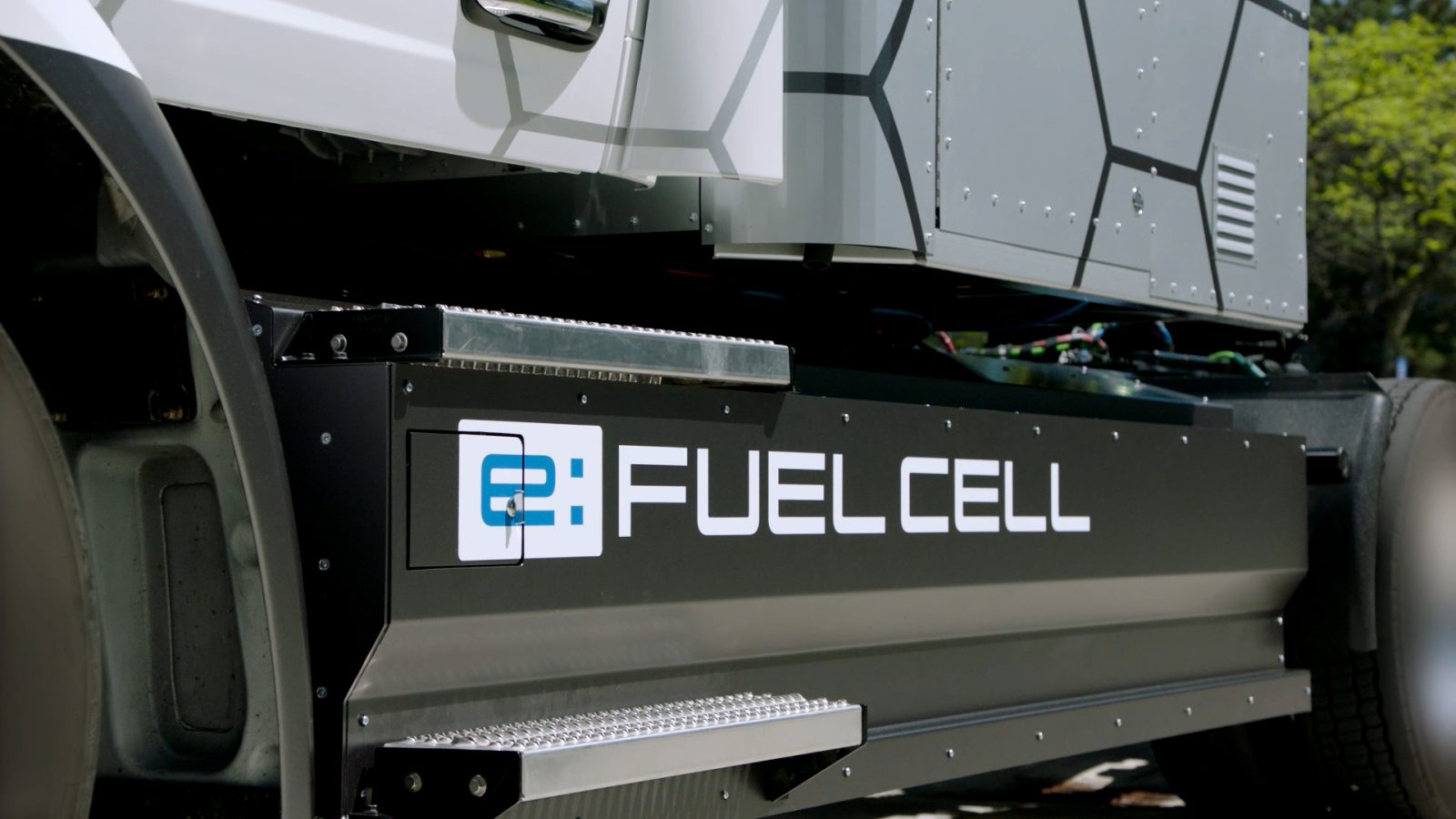
Honda is debuting a hydrogen semi truck concept at this year’s Advanced Clean Transportation Expo, an annual expo focusing on clean medium and heavy duty vehicles, next week in Las Vegas.
Honda has been a little slow to electrify, falling behind as has been the case with a lot of Japanese automakers. But under the management of Toshihiro Mibe, who became CEO in April 2021, Honda has started to accelerate.
Along with its release of some new BEVs like the Honda Prologue and Acura ZDX, both produced in partnership with GM, it has also come out with a unique fuel cell plug-in hybrid version of its CR-V.
And now it’s showing a full-on Class 8 semi truck concept, the heaviest vehicle on the road, powered by hydrogen.
Honda’s fuel cell truck is just a concept so far and quite light on details, but Honda wants to use it as part of a greater hydrogen strategy including commercial vehicles, consumer vehicles, stationary power stations and construction equipment.
Honda released a spec sheet for its concept, though as the vehicle isn’t in production, the numbers would change if it did go into production.
| Total length/width/height | 8,000 mm / 2,400 mm / 4,000mm |
| GCW | 37,273kg (Tractor Weight Target : 12,918kg, Load Weight Target : 24,355kg ) |
| Top Speed | 70 mph (Estimated) |
| Driving range | 400 miles at GCW (Estimated) |
| Fuel Cell System Output | 240kW combined (80kW x 3 FC systems) |
| Hydrogen Tank | High pressure 700bar Hydrogen Tank 82kg-H2 |
| Vehicle Battery | 120kWh High Voltage Battery |
Honda hasn’t given a date for when they plan to bring this to production, and partially says that the reason for that is that it is still looking for production partners to bring it to reality. Honda doesn’t build actual trucks, it’s just looking to supply the fuel cell systems to be used on a truck made by a large truck manufacturer.
Some other major manufacturers have announced hydrogen fuel cell trucks, like Kenworth’s partnership with Toyota to make a hydrogen T680, and Daimler’s GenH2 hydrogen truck.
Honda may be looking for a partnership like Toyota has, with another truck maker (Peterbilt, Mack, or the like).
So far, the main hydrogen truck penetration has come as a result of startups like Nikola, which is already delivering its Tre FCEV and opening its own hydrogen stations.
That said, these are still small efforts compared to the burgeoning battery-electric truck market.
Honda thinks that commercial vehicles like a fuel cell semi truck would help to create demand for hydrogen, and help create a hydrogen economy that would make hydrogen commercial and consumer vehicles more feasible. Right now, there are few hydrogen filling stations and commercial hydrogen is extremely expensive, and Honda hopes that having more vehicles on the road could help to stabilize both of those situations.
ACT Expo happens next week and is full of news for medium and heavy duty vehicles, and our correspondent Jo Borras will be there to bring you news & views from the conference.
Electrek’s Take
It is unlikely that fuel cells will take off in consumer vehicles. However, heavy duty vehicles are different, and may offer a niche that hydrogen can help with.
Batteries do have lower energy density than gasoline, but for consumer vehicles we have reached the point where EVs can be made economically with more than enough range for the vast majority of uses.
Top comment by Brian
Honda is still beating the H2 horse to death. They really need to give up on FCEVs. BEVs are only getting better and better every year while H2 will never get better than it already is. H2 has a minimum storage size and we've pretty much reached it. BEVs are getting better and better at storing energy and hopefully soon we'll have solid state batteries which will be much lighter and more energy dense.
That’s not the case with heavy duty vehicles, which are currently quite capable of certain tasks but the cost and weight of batteries can be prohibitive for things like long-haul trucking.
In these cases, we might see a niche where fuel cell electric trucks can see use in the medium term.
But that’s just one issue – the other issues with hydrogen are in creating a hydrogen economy so that hydrogen is reasonably priced, which it currently is not (around ~$30/kg, which is a few times more expensive than diesel per mile at current prices, though this does look like a transitory spike and ~$15/kg is a more “normal” hydrogen price); and in ensuring that hydrogen comes from clean sources, because currently 95% of it comes from methane, which means hydrogen vehicles are still powered almost entirely by fossil fuels (albeit a slightly more clean version of them, but still dirtier than a BEV).
Honda seems to be showing some signs of commitment to solving these problems with hydrogen, as we found out on our first drive of the CR-V e:FCEV, but it seems like there’s a long way to go. Will hydrogen trucks get to that point before BEVs become economical for all uses? We’ll have to wait and see, but it’s going to take a lot of work.
FTC: We use income earning auto affiliate links. More.



Comments